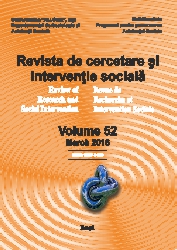EARLY CHILDCARE, MATERNAL EDUCATION AND FAMILY ORIGINS: DIFFERENCES IN COGNITIVE AND LINGUISTIC OUTCOMES THROUGHOUT CHILDHOOD
EARLY CHILDCARE, MATERNAL EDUCATION AND FAMILY ORIGINS: DIFFERENCES IN COGNITIVE AND LINGUISTIC OUTCOMES THROUGHOUT CHILDHOOD
Author(s): Daniela Bulgarelli, Paola MolinaSubject(s): Cognitive Psychology, Family and social welfare, Sociology of Education
Published by: Expert Projects Publishing
Keywords: crèche; immigrant status; language; cognitive functioning; type of care;
Summary/Abstract: Centre-based care in early childhood has been associated with better scores on linguistic and cognitive tests at later times. Nevertheless, there is no consensus about the stability of these effects across the preschool and primary school stages. Furthermore, no data about the effects of early care have been reported from the Italian context. Our study analysed the effects of early childcare, maternal education and parental origin (native versus foreign) on the cognitive and linguistic outcomes of pre-schoolers and pupils. The sample comprised 175 three- to tenyear- old children, from a large Northern Italian city. Children’s non-verbal cognitive functioning and receptive language were assessed. Parents provided information about their own birthplace and level of education and about their child’s birthplace and type of childcare received from 0 to 2 years. Analysis of the single effects of type of care, maternal education and parental origin on children’s outcomes, showed differences only due to maternal education. When the interactions among these variables were explored, centre-based care appeared to play a protective role with respect to maternal education: differences due to maternal education were evident in children who had been in home-based care, but not in children who had been in centre-based care. Besides, home-based care appeared to play a protective role with respect to parental origin: children with two foreign parents displayed more advanced linguistic knowledge if they had spent their early years in the home. The importance of educational intervention and training for professionals to better support children’s development will be discussed.
Journal: Revista de Cercetare şi Intervenţie Socială
- Issue Year: 2016
- Issue No: 52
- Page Range: 5-25
- Page Count: 22
- Language: English

